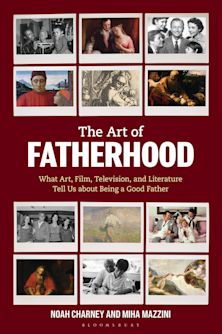- Home
- ACADEMIC
- Sociology
- Sociology of the Family
- Negotiating Work, Family, and Identity among Long-Haul Christian Truck Drivers
Negotiating Work, Family, and Identity among Long-Haul Christian Truck Drivers
What Would Jesus Haul?
Negotiating Work, Family, and Identity among Long-Haul Christian Truck Drivers
What Would Jesus Haul?
This product is usually dispatched within 10-14 days
- Delivery and returns info
-
Free UK delivery on orders £30 or over
You must sign in to add this item to your wishlist. Please sign in or create an account
Description
This book draws upon ethnographic and qualitative research in the United States to demonstrate the means through which long-haul truck drivers navigate work and family tensions in ways that resonate across categories of race, class, gender and religion. It examines how Christianity and constructions of masculinity are significant in the lives of long-haul drivers and how truckers work to construct narratives of their lives as ‘good, moral’ individuals in contrast to competing cultural narratives which suggest images of romantic, rule-free, renegade lives on the open road. Based upon ethnographic fieldwork, interviews, observations of long-haul truckers, and participation in a CDL school, this rich ethnography highlights how Christian trucking opportunities provide avenues through which balance is struck between work and family, masculinity and other identities. Embedded in larger social discourse about the meaning of masculinity and similar to evangelical perspectives such as those of the Promise Keepers, Christian truckers often draw upon older ideas about responsible, breadwinning fatherhood in their discourse about being good “fathers” while on the road. This discourse is in some conflict with the lived experiences of Christian truckers who simultaneously find themselves confronted by more contemporary cultural narratives of “the work-family balance” and expectations of what it means to be a good “worker” or a good “trucker.” The book offers new insight in the field of work and family studies and an extremely relevant voice in the broader contemporary discourse in the United States on the meaning of fatherhood and religion in the 21st century.
Table of Contents
Chapter 2: Christian Truckers in Culture and Context
Chapter 3: Where are Christian Truckers?: On the Road in Bobtails and Mobile Ministries
Chapter 4: Virgin Berths: Sex, Gender and Relationships on the Road
Chapter 5: Working Men and God’s Work
Chapter 6: Masculinity in Motion: Carrying the Message On and Off the Road
Product details
| Published | 12 Aug 2016 |
|---|---|
| Format | Hardback |
| Edition | 1st |
| Extent | 128 |
| ISBN | 9780739196625 |
| Imprint | Lexington Books |
| Dimensions | 236 x 157 mm |
| Publisher | Bloomsbury Publishing |
About the contributors
Reviews
-
The strengths of this book are many, including a nuanced understanding of how long-haul Christian truckers balance the demands of trucking, parenting, being a partner, and for many, proselytizing. . . Upton’s detailed ethnography would be a great addition to undergraduate and graduate sociology courses examining gender roles, work-family balance, religious practices, or occupational identities.
American Journal of Sociology
-
Negotiating Work is a gripping exploration of the subculture of truck stop ministries, Christianity on the road, and the men of America’s highways. Through her careful ethnographic research, Upton offers us the voices and daily lives of a heretofore overlooked population of Christian men actively constructing and performing masculinity. An impressive contribution to the literature of gender performance, masculinity studies, and religion in America, this book is a fascinating portrait of the myriad ways that workers construct, maintain, and rely on gendered identities.
Annie Blazer, College of William and Mary
-
Who knew that there is a veritable prayer meeting taking place along the nation’s highways? In Negotiating Work, Family, and Identity among Long-Haul Christian Truck Drivers, Upton chronicles the experiences of Christian truckers who are riding with and for Jesus. God really is a co-pilot for the men featured in this richly detailed and engrossing ethnography. This book is a significant contribution in understanding the intersections of religion, work, and identity. The stories are fascinating and offer a complex analysis of situational masculinities, especially in the ways that Christian truckers juggle competing narratives of responsible family men and rugged renegades.
Jodi O'Brien, Seattle University, author of The Production of Reality


































